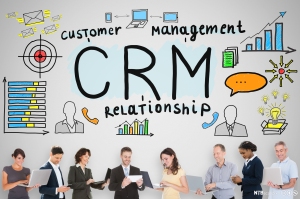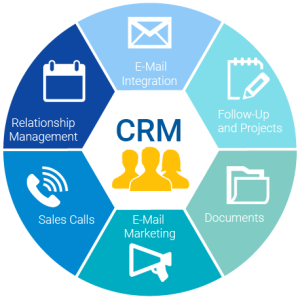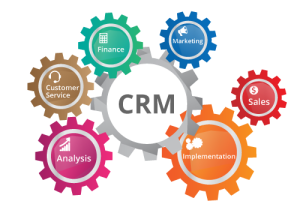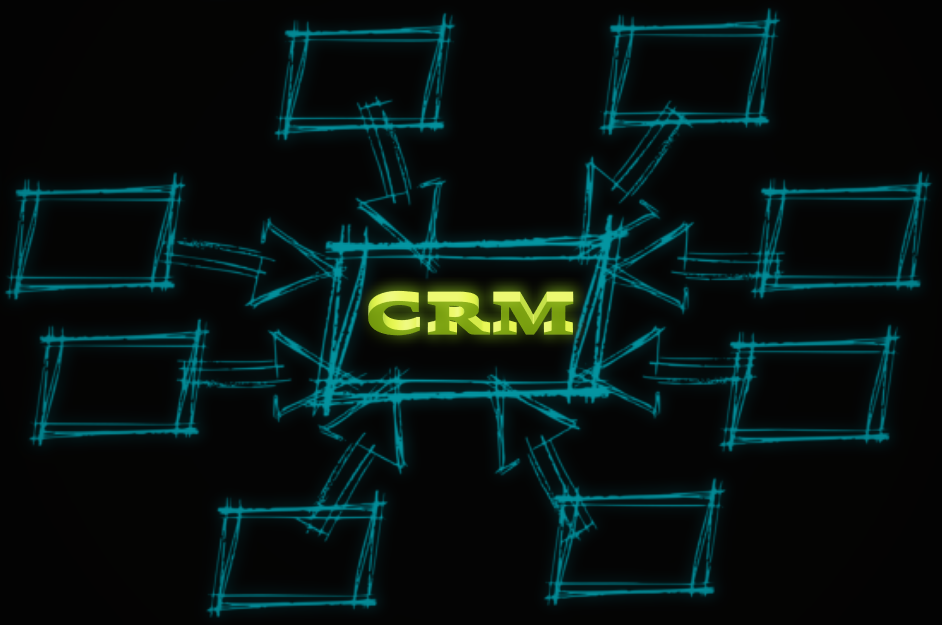
A Customer Relationship Management (CRM) system helps manage customer data. It supports sales management, delivers actionable insights, integrates with social media and facilitates team communication. Cloud–based CRM systems offer complete mobility and access to an ecosystem of bespoke apps.
Also, Customer Relationship Management (CRM) is a technology that helps companies manage their relationships and interactions with customers and potential customers. The goal of CRM is to improve business relationships to grow the business. A CRM system helps companies stay connected to customers, streamline processes, and improve profitability 1.
CRM tools can be used to manage customer relationships across the entire customer lifecycle, spanning marketing, sales, digital commerce, and customer service interactions. A CRM solution helps you focus on your organization’s relationships with individual people — including customers, service users, colleagues, or suppliers — throughout your lifecycle with them, including finding new customers, winning their business, and providing support and additional services throughout the relationship 1.
There are several CRM systems available in the market. Some of the popular ones include Salesforce, Microsoft Dynamics 365, and HubSpot 1. These systems offer a set of integrated, data-driven software solutions that help manage, track, and store information related to your company’s current and potential customers .
What are the benefits of using a CRM system?
CRM systems offer several benefits to businesses. Here are some of the key benefits of using a CRM system:
- Improved customer relationships: A CRM system helps businesses manage their interactions with customers and potential customers, which can lead to better customer relationships and increased customer satisfaction .
- Streamlined processes: A CRM system can help businesses streamline their processes by automating tasks such as data entry, lead nurturing, and sales forecasting .
- Increased profitability: By improving customer relationships and streamlining processes, a CRM system can help businesses increase profitability by reducing costs and increasing revenue 12.
- Centralized database: A CRM system allows businesses to maintain a centralized database of customer information, which can help improve data accessibility and shorten the sales cycle 1.
- Improved communication: A CRM system can help improve communication between teams by providing a shared location for contact data and automating reminders for follow-ups with prospects 1.
- Sales reporting: A CRM system can help businesses create sales reports that provide insights into sales performance and forecasting 1.
- Scalability: A CRM system can help businesses scale their sales processes over time by providing a flexible platform that can adapt to changing business needs 1.
Some of the popular CRM systems available in the market include Salesforce, Microsoft Dynamics 365, and HubSpot 1. These systems offer a set of integrated, data-driven software solutions that help manage, track, and store information related to your company’s current and potential customers .
How Do I Know If I Need a CRM?
Here are some signs that indicate you might need a CRM system:
- Difficulty keeping up with lead flow: If you’re struggling to keep up with a flood of new business, a CRM system can help you quickly sort and prioritize your leads so that your sales team can respond to them in a timely, efficient manner 1.
- Lack of a single source for customer information: If your company has customer and order information in more than one location, a CRM system can bring together all of your customer data from sales, service, and marketing 2.
- Inability to locate customer data: If your customer data is scattered across spreadsheets, email, and sticky notes, a CRM system can give your entire organization a single, central source of easily accessible data that can drive sales success rates and increase customer retention 1.
- Lack of visibility into sales team performance: Whether they’re in the office or on the road, it’s essential to know what your sales teams are doing and how they’re performing. A powerful CRM system allows team members to update details from their mobile devices, so information is instantly available for you to see and act on immediately if needed 1.
- Difficulty managing customer service interactions: If you’re struggling to manage customer service interactions, a CRM system can provide tools for case management, ticketing, and knowledge management 3.
- Inability to track marketing campaigns: If you’re unable to track the effectiveness of your marketing campaigns, a CRM system can automate marketing processes such as email marketing, social media marketing, and campaign management 4.
- Difficulty creating sales reports: If you’re having difficulty creating sales reports that provide insights into sales performance and forecasting, a CRM system can help you create customizable dashboards and reports 5.
Please note that these are just some of the signs that indicate you might need a CRM system. The specific signs may vary depending on the nature of your business.
Examples of CRM
There are several CRM systems available in the market. Here are some of the popular ones:
- Salesforce: A cloud-based CRM system that offers a range of features including contact management, sales automation, marketing automation, customer service and support, analytics and reporting, mobile access, and integration with other systems 12.
- Microsoft Dynamics 365: A cloud-based CRM system that offers features such as contact management, sales automation, marketing automation, customer service and support, analytics and reporting, mobile access, and integration with other systems .
- HubSpot: A cloud-based CRM system that offers features such as contact management, sales automation, marketing automation, customer service and support, analytics and reporting, mobile access, and integration with other systems 14.
- Zoho CRM: A cloud-based CRM system that offers features such as contact management, sales automation, marketing automation, customer service and support, analytics and reporting, mobile access, and integration with other systems 15.
- Pipedrive: A cloud-based CRM system that offers features such as contact management, sales automation, marketing automation, customer service and support, analytics and reporting, mobile access, and integration with other systems 1 .
Please note that the features offered by a CRM system may vary depending on the vendor and the specific product.
CRM Common Features

CRM systems offer a range of features that help businesses manage their customer relationships. Here are some of the common features of a CRM system:
- Contact management: A CRM system allows businesses to store and manage customer contact information, including names, addresses, phone numbers, and email addresses 12.
- Sales automation: A CRM system can automate sales processes such as lead generation, lead nurturing, and sales forecasting 12.
- Marketing automation: A CRM system can automate marketing processes such as email marketing, social media marketing, and campaign management 12.
- Customer service and support: A CRM system can help businesses manage customer service interactions by providing tools for case management, ticketing, and knowledge management 12.
- Analytics and reporting: A CRM system can provide businesses with insights into customer behavior and sales performance through customizable dashboards and reports 12.
- Mobile access: Many CRM systems offer mobile apps that allow users to access customer information on-the-go 12.
- Integration with other systems: A CRM system can integrate with other business systems such as accounting software, marketing automation tools, and e-commerce platforms 12. See next section for more details.
Please note that the features offered by a CRM system may vary depending on the vendor and the specific product.
What are some examples of CRM integrations?
CRM systems can integrate with a variety of other business systems to provide a more comprehensive view of customer data. Here are some examples of CRM integrations:
- Marketing automation tools: CRM systems can integrate with marketing automation tools such as Marketo and Pardot to help businesses automate their marketing campaigns and track customer interactions 1.
- E-commerce platforms: CRM systems can integrate with e-commerce platforms such as Shopify and Magento to help businesses manage their online sales channels and track customer behavior 1.
- Accounting software: CRM systems can integrate with accounting software such as QuickBooks and Xero to help businesses manage their finances and track customer transactions 1.
- Social media platforms: CRM systems can integrate with social media platforms such as Facebook and Twitter to help businesses manage their social media presence and track customer interactions 1.
- Customer service tools: CRM systems can integrate with customer service tools such as Zendesk and Freshdesk to help businesses manage their customer support interactions and track customer feedback 1.
Please note that the integrations offered by a CRM system may vary depending on the vendor and the specific product.
How Much Does CRM Costs
CRM systems offer a range of pricing models that cater to different business needs. Here are some of the common pricing models for CRM systems:
- Per-user pricing: This model charges businesses based on the number of users who will use the platform. The per-user price is set by the CRM provider, typically on a monthly basis 12.
- Flat-fee pricing: This model charges businesses a flat fee for using the CRM system, regardless of the number of users 2.
- Tiered pricing: This model offers different pricing tiers based on the features and functionality offered by the CRM system. Businesses can choose the tier that best suits their needs 23.
- Free subscription pricing: This model offers a free version of the CRM system with limited features and functionality. Businesses can upgrade to a paid version to access more features 2.
- Modular usage pricing: This model allows businesses to pay only for the features and functionality they need, rather than paying for the entire CRM system 2.
Please note that the pricing models offered by a CRM system may vary depending on the vendor and the specific product.
Types of CRM
There are three main types of CRM systems: collaborative, analytical, and operational. Also Strategic CRM systems are added in some contexts and cases.
Best 5 CRMs Out Now

There are several CRM systems available in the market. Here are some of the popular ones:
- Salesforce: A cloud-based CRM system that offers a range of features including contact management, sales automation, marketing automation, customer service and support, analytics and reporting, mobile access, and integration with other systems 12.
- Microsoft Dynamics 365: A cloud-based CRM system that offers features such as contact management, sales automation, marketing automation, customer service and support, analytics and reporting, mobile access, and integration with other systems .
- HubSpot: A cloud-based CRM system that offers features such as contact management, sales automation, marketing automation, customer service and support, analytics and reporting, mobile access, and integration with other systems 14.
- Zoho CRM: A cloud-based CRM system that offers features such as contact management, sales automation, marketing automation, customer service and support, analytics and reporting, mobile access, and integration with other systems 15.
- Pipedrive: A cloud-based CRM system that offers features such as contact management, sales automation, marketing automation, customer service and support, analytics and reporting, mobile access, and integration with other systems 1 .
Please note that the features offered by a CRM system may vary depending on the vendor and the specific product.
If you’re looking for more information on the best CRM software for small businesses or startups in 2023, you can check out these resources:
- PCMag has compiled a list of the best CRM software for 2023 1.
- Forbes has published an article on the best CRM software for small businesses in October 2023 2.
- Zapier has published an article on the best CRM software in 2023 3.
Conclusion
Before you decide to get a CRM, take a deep look at the reasons you need a CRM. Think about the features you need in your CRM. Study carefully the types of CRM software out there and pricing plans that comply with your budget. Take a look at the best and top rated and reviewed systems and return to this guide if you need at any time. Check below resources also to have more details.
More Resources
- Customer Relationship Management Definition – Salesforce US
- What is CRM? | Microsoft Dynamics 365
- What is CRM? | HubSpot
- 10 Best CRM Software Examples and Their Use Cases | ClickUp
- The best CRM software in 2023 | Zapier
- What is a CRM System? Examples of CRM Systems
- The Best CRM Software for 2023 | PCMag






Leave a comment